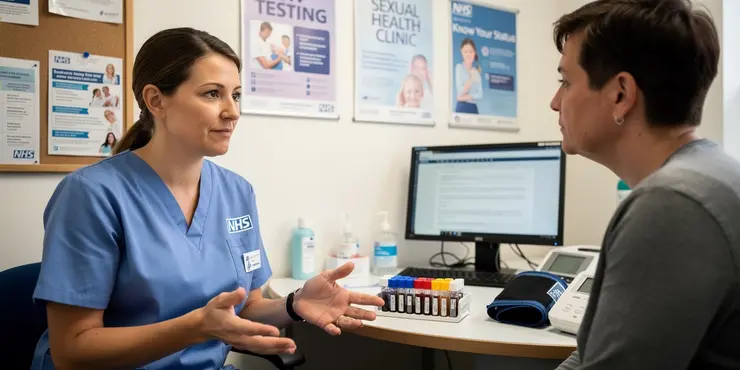
Find Help
More Items From Ergsy search
-
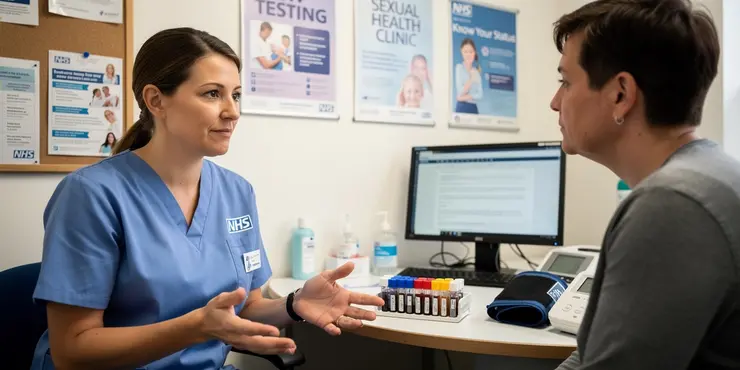
How is HIV transmitted?
Relevance: 100%
-
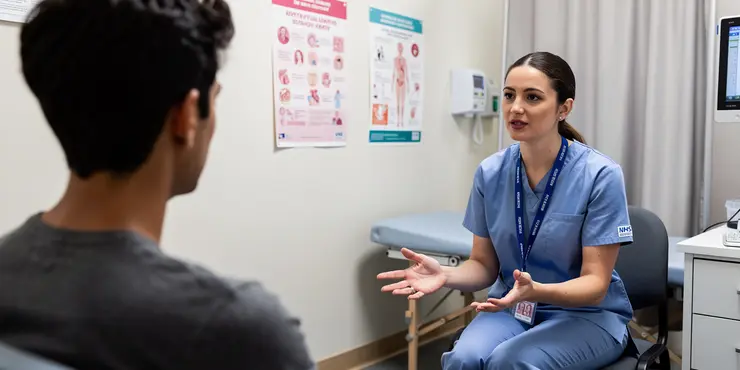
What is HIV?
Relevance: 95%
-
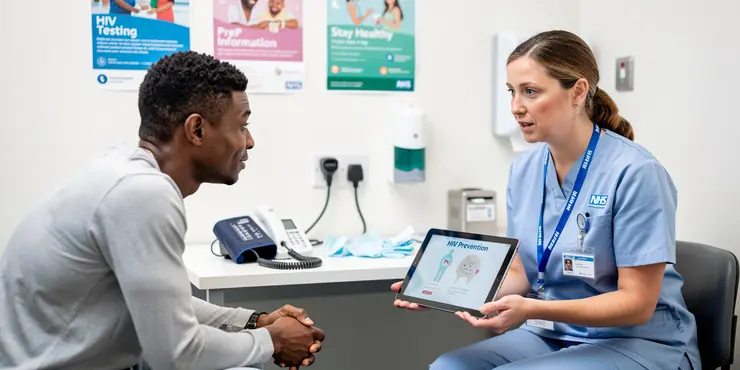
How can HIV be prevented?
Relevance: 94%
-

HIV and pregnancy | NHS
Relevance: 90%
-
Can HIV be transmitted through blood transfusions?
Relevance: 88%
-

Is it safe for a partner of someone with HIV to have children?
Relevance: 87%
-
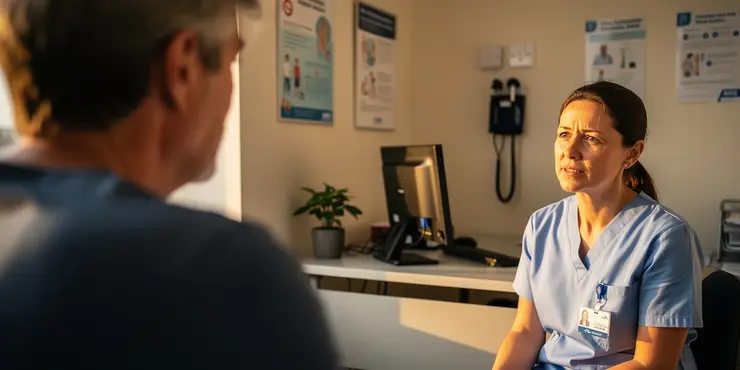
Can HIV be transmitted through insect bites?
Relevance: 84%
-
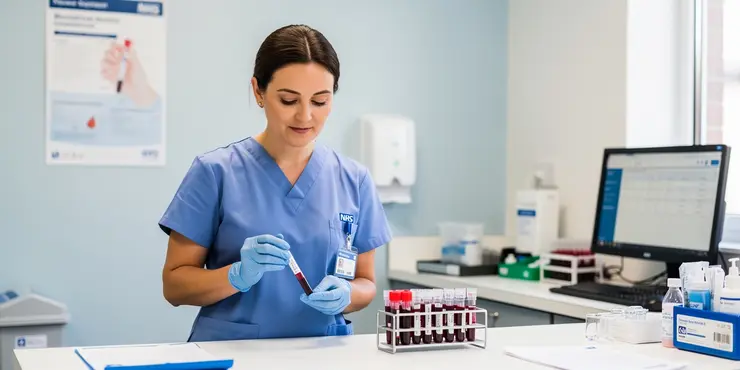
How is HIV diagnosed?
Relevance: 81%
-
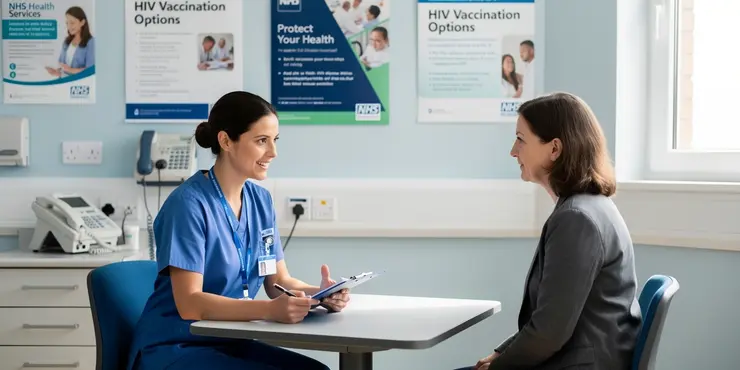
Are there vaccines available for HIV?
Relevance: 81%
-

Sexual Health - HIV Testing
Relevance: 80%
-
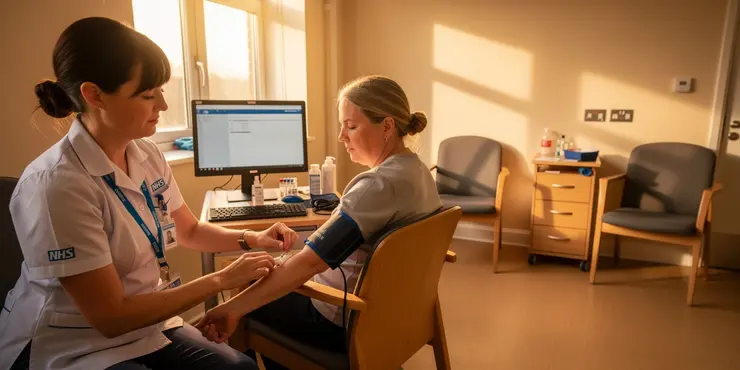
How is blood screened to prevent disease transmission?
Relevance: 79%
-

Can people with HIV lead normal lives?
Relevance: 78%
-

Is HIV only a concern for certain groups of people?
Relevance: 77%
-
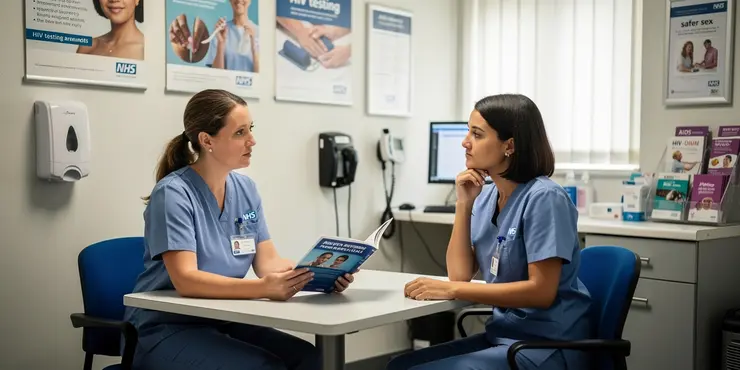
What is HIV / AIDS?
Relevance: 76%
-
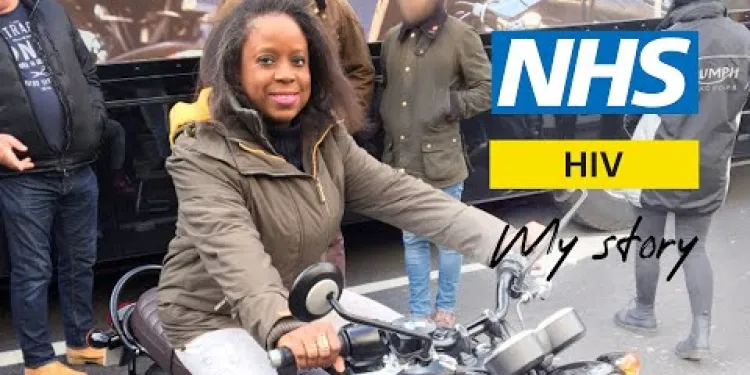
HIV - My Story - Florence | NHS
Relevance: 75%
-
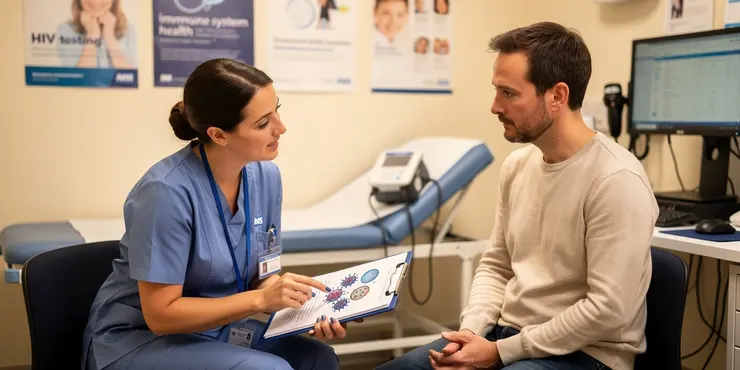
How does HIV affect the immune system?
Relevance: 75%
-
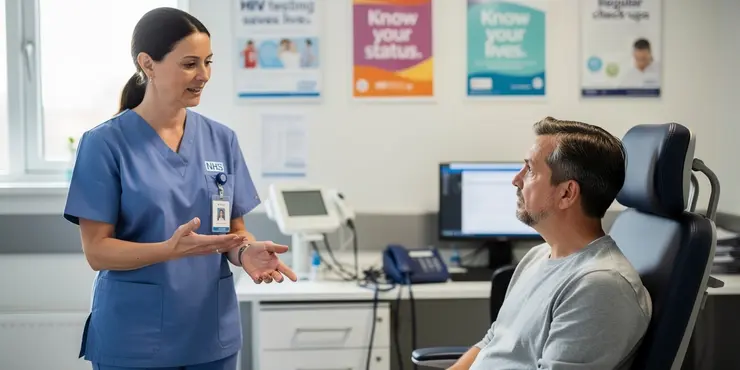
How often should someone get tested for HIV?
Relevance: 72%
-
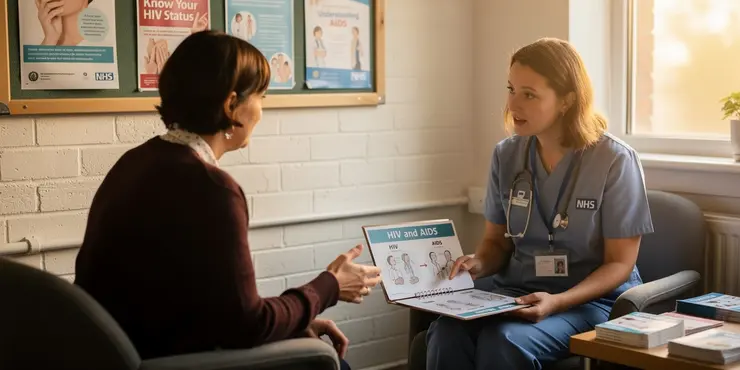
What is the difference between HIV and AIDS?
Relevance: 70%
-
What role does stigma play in the HIV epidemic?
Relevance: 70%
-
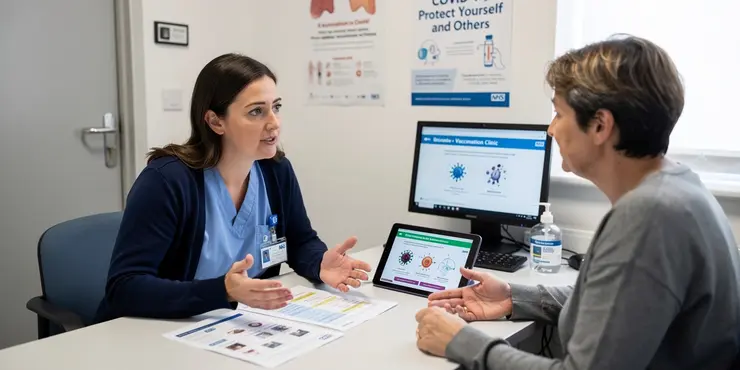
Are new variants more transmissible?
Relevance: 68%
-
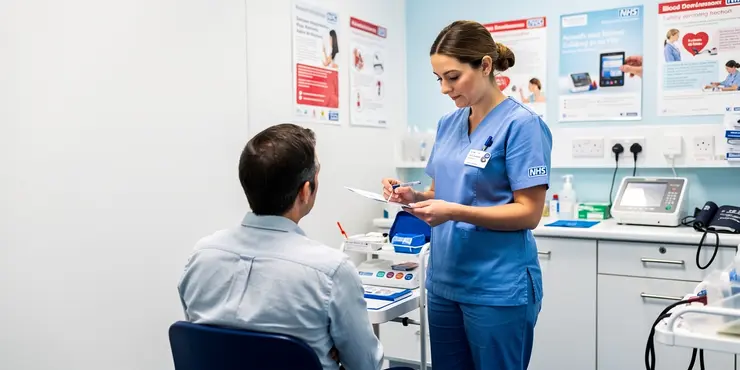
What measures are taken to prevent disease transmission in blood transfusions?
Relevance: 65%
-
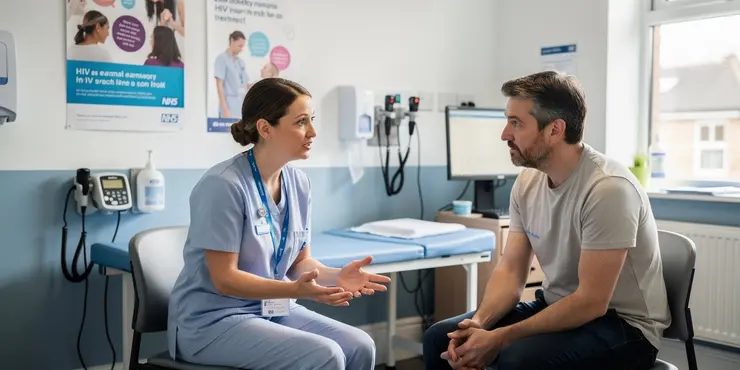
Can HIV be cured?
Relevance: 56%
-
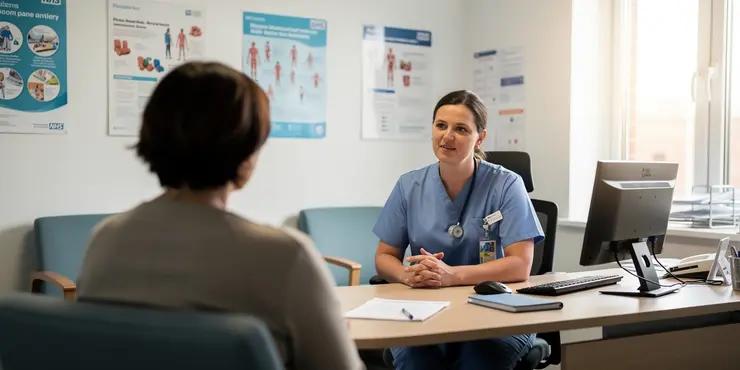
What are the symptoms of HIV?
Relevance: 55%
-
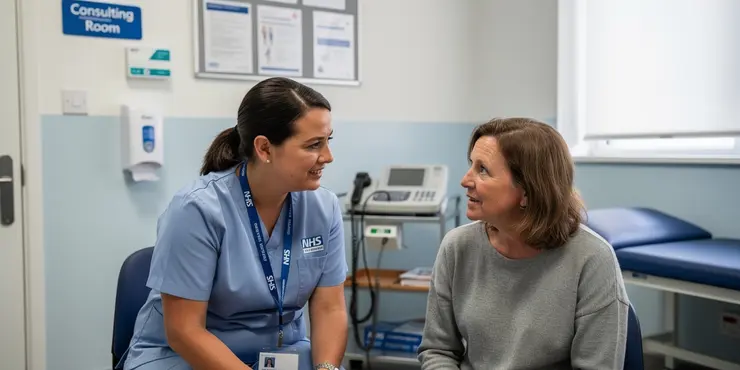
What role do fruit bats play in Nipah Virus transmission?
Relevance: 55%
-
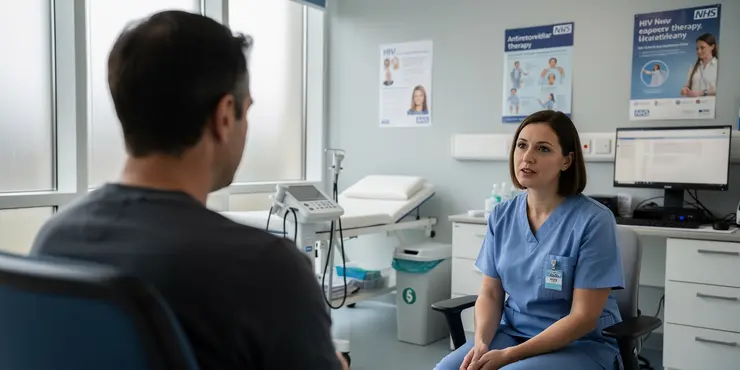
What is antiretroviral therapy (ART)?
Relevance: 52%
-
Why is blood donation history important in preventing disease transmission?
Relevance: 50%
-

What diseases can be spread by blood transfusions?
Relevance: 48%
-
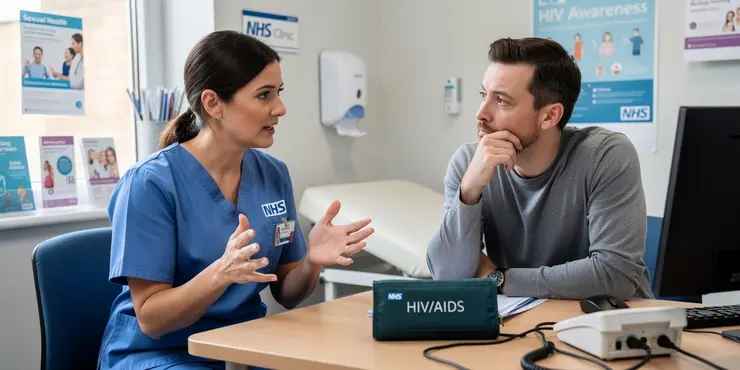
What is AIDS?
Relevance: 48%
-
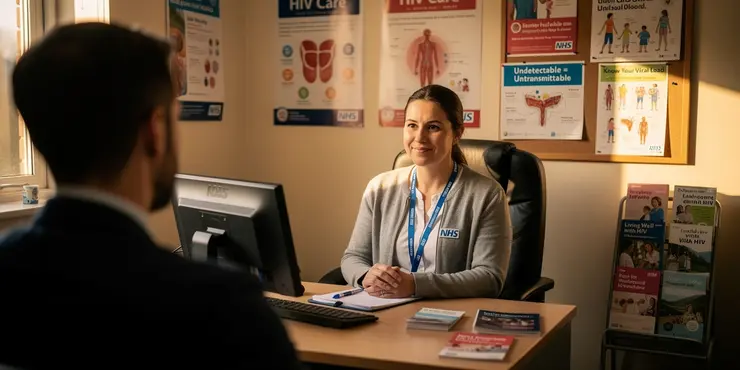
What does an undetectable viral load mean?
Relevance: 45%
-
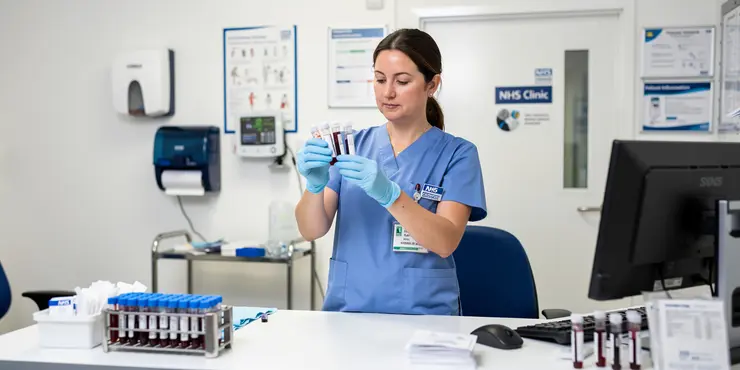
What other viruses are tested for in blood donations?
Relevance: 42%
-
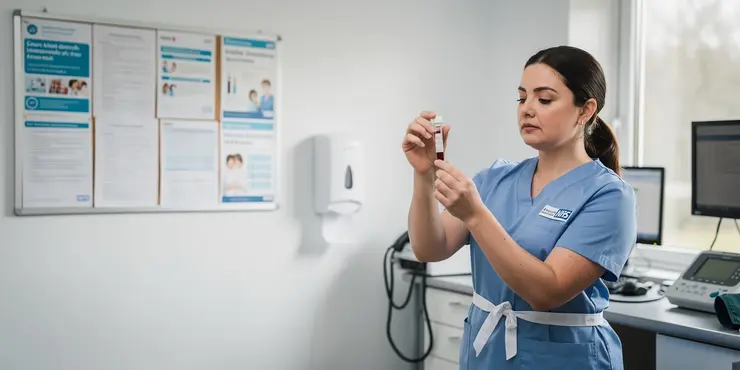
What is the most common disease transmitted by blood transfusion?
Relevance: 38%
-
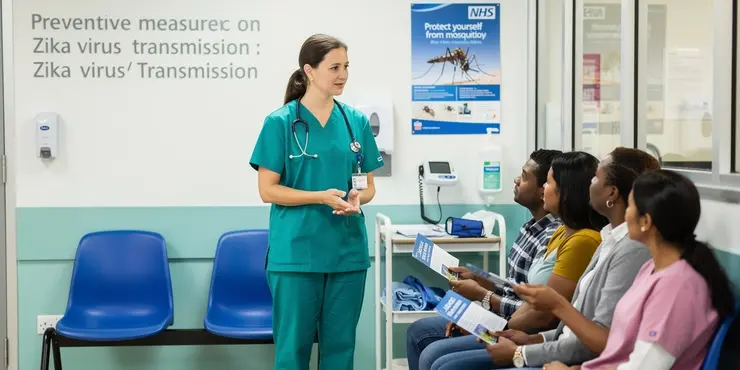
What measures are in place to prevent Zika virus transmission in the UK?
Relevance: 33%
-

Can HIV be transmitted through casual contact?
Relevance: 30%
-
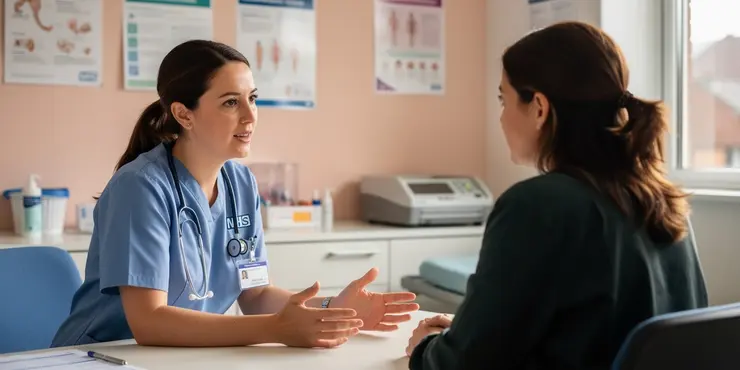
Sexually transmitted infections STIs
Relevance: 30%
-

Understanding Your Sexual Health - Herpes
Relevance: 25%
-
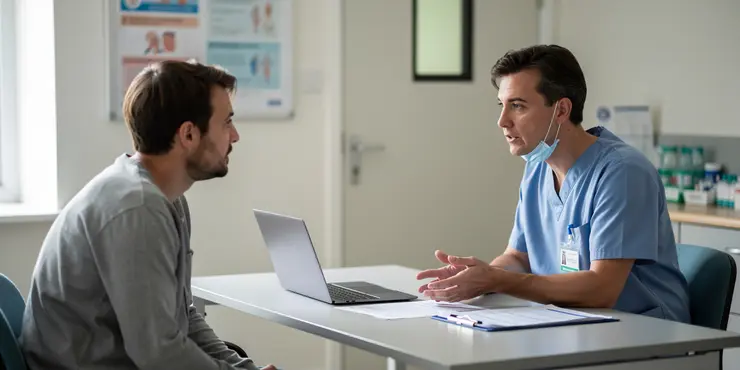
How is Nipah Virus transmitted?
Relevance: 25%
-
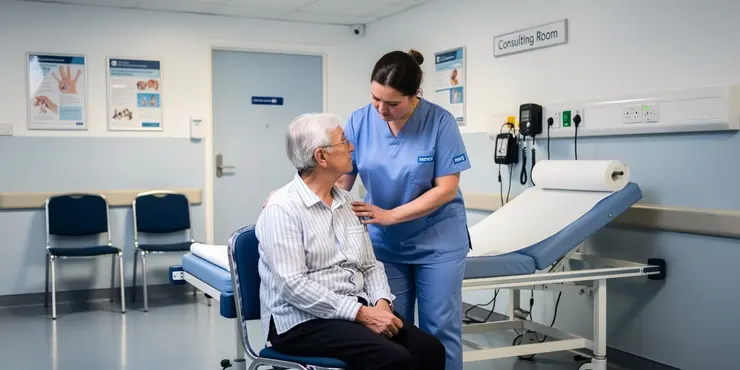
Can Nipah Virus be transmitted from person to person?
Relevance: 25%
-
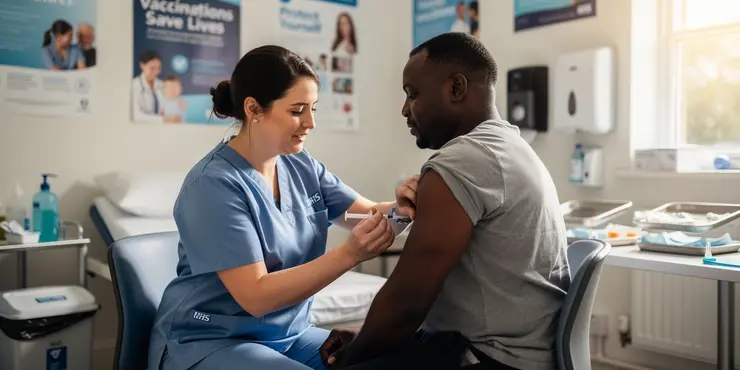
What are the guidelines for meningitis vaccination for HIV-infected individuals?
Relevance: 25%
-
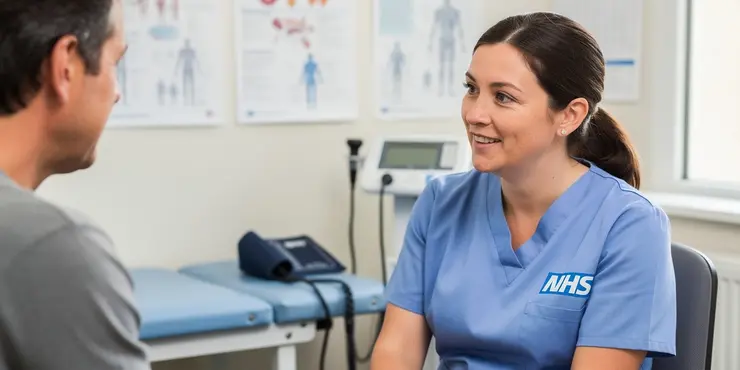
Why is antibiotic resistance a concern with gonorrhoea?
Relevance: 25%
-
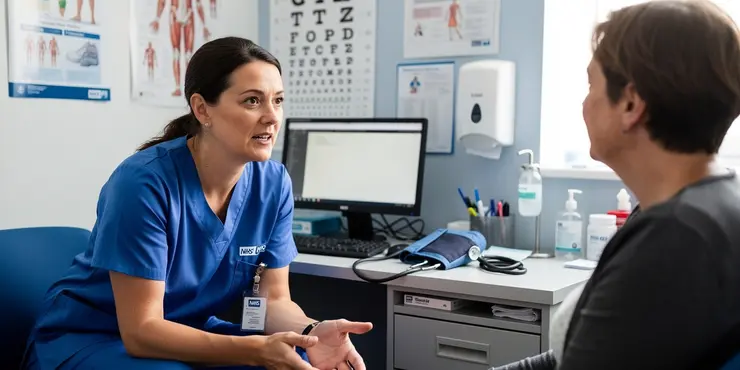
How is the Zika virus transmitted?
Relevance: 24%
How is HIV Transmitted?
Human Immunodeficiency Virus (HIV) is a virus that targets the immune system, and its transmission primarily occurs through specific activities. Understanding these transmission methods is crucial for effective prevention and management of the virus within the UK and beyond.
Transmission Through Sexual Contact
The most common way HIV is transmitted is through unprotected sexual intercourse with a person who has the virus. This includes vaginal, anal, and, to a lesser extent, oral sex. During these activities, the virus can enter the body through the mucous membranes of the genitals, rectum, or mouth. The risk of transmission increases if there are cuts or sores, which may allow the virus to enter the bloodstream more easily.
Transmission Through Blood
Sharing needles or syringes that contain HIV-infected blood is a highly efficient way for the virus to spread. This mode of transmission is particularly associated with intravenous drug use. In the UK, needle exchange programs aim to reduce this risk by providing clean equipment to drug users.
Additionally, although rare in the UK due to strict screening processes, HIV can be transmitted through blood transfusions, organ transplants, or tissue donations from an infected donor. The NHS employs rigorous testing to virtually eliminate this risk, ensuring that blood products are safe.
Mother-to-Child Transmission
Mothers with HIV can pass the virus to their child during pregnancy, childbirth, or breastfeeding. However, with modern antiretroviral treatments and medical interventions, the risk of mother-to-child transmission can be significantly reduced. In the UK, pregnant women are routinely offered an HIV test to facilitate early diagnosis and treatment, which dramatically reduces transmission risks.
Myths and Misunderstandings
It is important to dispel common myths about how HIV is transmitted. The virus cannot be spread through casual contact, such as hugging, kissing, sharing food or drinks, using the same toilet, or via insect bites. HIV requires the exchange of certain body fluids, such as blood, semen, vaginal fluids, rectal fluids, or breast milk, from a person with HIV.
Prevention Strategies
Prevention strategies in the UK focus on education, safe sex practices, and the use of preventive medications like pre-exposure prophylaxis (PrEP) and post-exposure prophylaxis (PEP). Condom use during sexual intercourse remains one of the most effective ways to prevent the transmission of HIV.
Regular testing and early treatment are also essential measures. People who are aware of their HIV-positive status can take antiretroviral therapy (ART) to reduce their viral load to undetectable levels, greatly reducing the risk of transmitting the virus to others.
How Can You Get HIV?
HIV is a virus that can make the body sick by hurting the immune system. You can catch the virus in certain ways. It's important to know how people can get HIV so we can stop it from spreading.
Getting HIV From Sexual Contact
The most common way to get HIV is by having sex without a condom with someone who has the virus. This includes vaginal sex, anal sex, and sometimes oral sex. HIV can get into your body through soft parts inside your genitals, bottom, or mouth. If you have cuts or sores, the virus can get into your blood more easily.
Getting HIV From Blood
People can get HIV by sharing needles that have infected blood on them. This often happens with people who use drugs with needles. In the UK, there are programs to give clean needles to help stop this from happening.
It's very rare, but HIV can also be passed through blood transfusions, organ transplants, or tissue donations from someone who has the virus. Doctors in the UK test blood and organs very carefully to make sure they are safe.
Passing HIV From Mother to Baby
Mothers with HIV can give the virus to their baby during pregnancy, when the baby is being born, or through breastfeeding. But there are medicines that can help mothers so they do not pass HIV to their babies. In the UK, pregnant women are offered an HIV test to help keep their babies safe.
Things That Do Not Spread HIV
It's important to know that HIV is not spread through hugging, kissing, sharing food or drinks, using the same toilet, or insect bites. HIV only spreads through certain body fluids like blood, semen, vaginal fluids, rectal fluids, or breast milk, and only from a person who has HIV.
How to Prevent HIV
In the UK, people learn about safe sex and can use medicines to help prevent HIV, like PrEP and PEP. Using a condom during sex is one of the best ways to stop HIV.
Getting tested and treated early is also very important. People who know they have HIV can take medicine to make the virus really low in their blood. This helps stop them from giving the virus to other people.
Frequently Asked Questions
What are the main ways HIV is transmitted?
HIV is primarily transmitted through unprotected sexual contact, sharing needles, and from mother to child during childbirth or breastfeeding.
Can HIV be transmitted through casual contact like hugging?
No, HIV is not transmitted through casual contact such as hugging, shaking hands, or sharing food.
Is it possible to get HIV from a mosquito bite?
No, HIV cannot be transmitted through mosquito bites or any other insect bites.
Can HIV be spread through sharing a toilet or shower?
No, you cannot get HIV from sharing a toilet, shower, or any other shared facilities.
Can you get HIV from kissing?
HIV is not spread through saliva, so you cannot get HIV from kissing unless both partners have significant oral cuts or sores and there is blood exchange.
Is oral sex a risk for HIV transmission?
Oral sex carries a much lower risk of HIV transmission compared to anal or vaginal sex, but there is still some risk, particularly if there are cuts or sores in the mouth.
Can HIV be transmitted through blood transfusions?
While the risk is extremely low in countries that screen blood supplies rigorously, HIV can be transmitted through transfusions of contaminated blood.
Does using a condom eliminate the risk of HIV transmission?
Using condoms correctly and consistently greatly reduces the risk of HIV transmission, but no method is 100% effective.
Can HIV be transmitted through breastfeeding?
Yes, HIV can be transmitted from an infected mother to her baby through breastfeeding.
Can you get HIV by sharing needles or syringes?
Yes, sharing needles or syringes with someone who has HIV is a very high-risk activity for transmission.
Is it possible to get HIV through food prepared by someone with HIV?
No, HIV is not transmitted through food preparation or consumption.
Can pregnant women with HIV pass the virus to their babies?
Yes, but with proper treatment, the risk of mother-to-child transmission during pregnancy, delivery, or breastfeeding can be significantly reduced.
What is the role of antiretroviral therapy in preventing HIV transmission?
Antiretroviral therapy can lower a person's viral load to undetectable levels, effectively eliminating the risk of sexual transmission.
Can you get HIV from a tattoo or piercing?
The risk of acquiring HIV from tattooing or body piercing is very low if proper sterilization and disinfection procedures are followed.
Is it possible to contract HIV through a cut or wound?
HIV transmission through cuts or wounds is possible but extremely rare, as it would require contact with infected blood.
Can you get HIV from animals?
No, humans cannot get HIV from animals; HIV is a human-specific virus.
Can saliva transmit HIV?
No, saliva does not transmit HIV. The virus is transmitted through certain body fluids such as blood, semen, vaginal fluids, and breast milk.
Is there a vaccine available to prevent HIV transmission?
As of now, there is no vaccine available to prevent HIV, but research is ongoing.
How does pre-exposure prophylaxis (PrEP) help in preventing HIV transmission?
PrEP is a medication that, when taken daily, can significantly reduce the risk of acquiring HIV in individuals at high risk.
Does having another sexually transmitted infection (STI) affect HIV transmission risk?
Yes, having another STI can increase the risk of acquiring or transmitting HIV.
How does HIV spread?
HIV is a virus. It can move from one person to another. Here are the main ways it spreads:
- Blood: It spreads through blood if you share needles.
- Unprotected Sex: It can spread if you have sex without using a condom.
- From Mother to Baby: A mother with HIV can pass it to her baby during birth or breastfeeding.
If you want more help to understand, you can ask a doctor or health worker.
HIV can spread in a few ways. It can happen if you have sex without a condom. You can also get it if you share needles with someone. Babies can get it from their mothers when they are being born or if they drink their mother's milk.
Can you get HIV from hugging?
No, you cannot get HIV from hugging someone. HIV does not spread through touching or holding hands. It is safe to hug people with HIV.
If you want to learn more about how HIV spreads, you can talk to a doctor or read easy books about HIV. Online videos with simple explanations can also help.
No, you cannot get HIV from hugging, shaking hands, or sharing food with someone.
Can you get HIV from a mosquito bite?
No, you cannot get HIV from a mosquito bite.
HIV is a virus that people get from other people, not from mosquitoes.
If you have more questions, you can:
- Ask a doctor.
- Look for helpful information online.
- Talk to someone you trust for advice.
No, you cannot get HIV from mosquito bites or bug bites.
Can you get HIV from using the same toilet or shower?
No, you cannot get HIV from sharing a toilet or shower. HIV is a virus that spreads through blood, not by touching things like toilets or showers.
Tools that can help you understand more:
- Watch short videos about how HIV spreads.
- Ask someone you trust to explain it to you.
No, you cannot get HIV from using the same toilet or shower as someone else. It is safe to share these places.
Can someone get HIV from kissing?
No, you cannot get HIV from kissing. HIV is a virus. It spreads through body fluids like blood, not through saliva.
If you want to learn more, you can use helpful tools like videos or talk to a doctor or nurse.
You cannot get HIV from saliva. This means you won't get HIV from kissing.
But be careful if both people have big cuts or sores in their mouths. If there is blood, there is a small risk.
Can you get HIV from oral sex?
Oral sex means using your mouth on someone's private parts. You might worry if you can get HIV this way.
It's important to be safe. Use protective things like condoms or dental dams to lower the risk.
Talk to a doctor or nurse if you have questions. They can help you understand and stay safe.
Oral sex is safer than anal or vaginal sex if you want to avoid HIV. But there is still a small chance of getting HIV, especially if you have cuts or sores in your mouth.
Can you get HIV from a blood donation?
HIV is a virus. It can make people sick.
You can get HIV if you have blood from someone who has it.
But, hospitals check blood carefully. They make sure it is safe.
Ask a doctor or nurse if you have questions. They can help.
In countries where blood is carefully checked, the risk is very small. But HIV can still be passed on if the blood is not safe.
Do condoms stop HIV completely?
Using a condom can help protect from HIV, but it does not stop all risk. Condoms work well when used the right way. They can stop HIV from spreading most of the time.
It's good to use condoms every time you have sex. Ask an adult you trust if you have questions.
Pictures or videos can help explain how to use condoms. Talk to a doctor or nurse if you want to learn more.
Using condoms the right way every time helps keep you safe from HIV. But no method can stop it completely.
Can a baby get HIV from breastfeeding?
Yes, a baby can get HIV from breastfeeding if the mother has HIV. HIV is a virus that can make people sick. If a mother has HIV, the virus can be in her breast milk.
But there are ways to help. A mother with HIV can talk to her doctor about medicine to keep her baby safe.
Here are some tools to help families:
- Talk to a doctor or nurse for advice.
- Use medicine if the doctor gives it to the mother.
- Consider other ways to feed the baby, like formula milk.
Always ask questions if you are unsure.
Yes, a mom with HIV can pass it to her baby when breastfeeding.
Can you get HIV from sharing needles?
Yes, sharing needles is not safe. You can get HIV this way. Use a new needle each time to stay safe.
Be careful! Using the same needles or syringes as someone who has HIV can easily spread the virus to you.
Can you get HIV from food made by someone with HIV?
No, you cannot get HIV from eating food.
Even if someone with HIV makes your food, it's still safe to eat.
HIV does not live in food. It cannot spread this way.
If you have more questions, ask a doctor or look for easy-to-read information online.
Using tools like text-to-speech software can help if reading is hard.
No, you cannot catch HIV from cooking or eating food.
Can a mom with HIV give it to her baby?
Yes, but with the right help, the chance of the mother passing it to the baby during pregnancy, birth, or breastfeeding can be made much smaller.
How does medicine help stop the spread of HIV?
Medicine for HIV is called antiretroviral therapy (or ART). ART helps people with HIV live longer and healthier. It also makes it hard for the virus to spread to other people.
If someone takes ART medicine every day, it lowers the amount of virus in their body. This makes it very hard for the virus to spread.
To help understand these ideas, you can:
- Use pictures or videos about ART and HIV.
- Ask a doctor or nurse if you have questions.
- Find easy-to-read books about ART and HIV.
Medicine called antiretroviral therapy can make the amount of virus in a person's body so low that doctors can't find it. This means the virus can't be passed to someone else during sex.
Can you get HIV from getting a tattoo or piercing?
Getting a tattoo or piercing is safe if clean tools are used. It is important to make sure the tools are clean to avoid getting germs or viruses.
HIV is a virus. You cannot get HIV if the tools are clean and safe.
To stay safe, only go to places where they use new needles each time.
Ask the person giving you a tattoo or piercing if they use clean tools.
If you feel unsure, take someone you trust with you to ask questions.
Getting HIV from tattoos or body piercings is not likely if things are kept clean and safe.
Can you get HIV from a cut?
You can get HIV from cuts or wounds, but it almost never happens. This is because the cut needs to touch blood that has the HIV virus in it for someone to get infected.
Can you get HIV from animals?
No, you cannot get HIV from animals. Only people can give HIV to other people.
If you need help understanding this, you can:
- Ask someone you trust to explain it to you.
- Use apps or websites that make reading easier.
No, people cannot get HIV from animals. HIV is a virus that only affects humans.
Can you get HIV from spit?
HIV is a virus that makes people very sick. You cannot get HIV from someone's spit (saliva).
It is safe to hug, kiss, or talk to someone with HIV. HIV spreads when blood or other body fluids mix, not through spit.
If you want to learn more about HIV, you can ask a doctor, nurse, or use helpful websites.
No, spit (saliva) does not spread HIV. The virus spreads through certain body fluids like blood, sperm, vaginal fluids, and breast milk.
Can you get a shot to stop HIV?
No, there is no shot right now that stops HIV. But scientists are working hard on it.
Here are some ways to stay safe from HIV:
- Use a condom when you have sex.
- Take medicine called PrEP if your doctor says it's right for you.
- Do not share needles.
If you need help or have questions, you can talk to a doctor or nurse.
Right now, there is no shot to stop people from getting HIV. Scientists are working hard to make one.
How does PrEP help stop the spread of HIV?
PrEP is a medicine. People take it to stop getting HIV.
Here’s how it works:
- It makes it hard for the HIV virus to stay in your body.
- You need to take it before you come into contact with the virus.
- PrEP works best if you take it every day.
Talking with a doctor or nurse can help. They can explain PrEP and how to use it.
Some people might use reminders to take their medicine every day. A calendar, alarm, or app can help with this.
PrEP is a medicine you take every day. It helps stop people from getting HIV. This is important for people who might get HIV easily.
Do other infections make it easier to get HIV?
Yes, if you have another STI, it is easier to get or give someone HIV.
Useful Links
This website offers general information and is not a substitute for professional advice.
Always seek guidance from qualified professionals.
If you have any medical concerns or need urgent help, contact a healthcare professional or emergency services immediately.
Some of this content was generated with AI assistance. We’ve done our best to keep it accurate, helpful, and human-friendly.
- Ergsy carfully checks the information in the videos we provide here.
- Videos shown by Youtube after a video has completed, have NOT been reviewed by ERGSY.
- To view, click the arrow in centre of video.
- Most of the videos you find here will have subtitles and/or closed captions available.
- You may need to turn these on, and choose your preferred language.
- Go to the video you'd like to watch.
- If closed captions (CC) are available, settings will be visible on the bottom right of the video player.
- To turn on Captions, click settings .
- To turn off Captions, click settings again.
More Items From Ergsy search
-

How is HIV transmitted?
Relevance: 100%
-

What is HIV?
Relevance: 95%
-

How can HIV be prevented?
Relevance: 94%
-

HIV and pregnancy | NHS
Relevance: 90%
-
Can HIV be transmitted through blood transfusions?
Relevance: 88%
-

Is it safe for a partner of someone with HIV to have children?
Relevance: 87%
-

Can HIV be transmitted through insect bites?
Relevance: 84%
-

How is HIV diagnosed?
Relevance: 81%
-

Are there vaccines available for HIV?
Relevance: 81%
-

Sexual Health - HIV Testing
Relevance: 80%
-

How is blood screened to prevent disease transmission?
Relevance: 79%
-

Can people with HIV lead normal lives?
Relevance: 78%
-

Is HIV only a concern for certain groups of people?
Relevance: 77%
-

What is HIV / AIDS?
Relevance: 76%
-

HIV - My Story - Florence | NHS
Relevance: 75%
-

How does HIV affect the immune system?
Relevance: 75%
-

How often should someone get tested for HIV?
Relevance: 72%
-

What is the difference between HIV and AIDS?
Relevance: 70%
-
What role does stigma play in the HIV epidemic?
Relevance: 70%
-

Are new variants more transmissible?
Relevance: 68%
-

What measures are taken to prevent disease transmission in blood transfusions?
Relevance: 65%
-

Can HIV be cured?
Relevance: 56%
-

What are the symptoms of HIV?
Relevance: 55%
-

What role do fruit bats play in Nipah Virus transmission?
Relevance: 55%
-

What is antiretroviral therapy (ART)?
Relevance: 52%
-
Why is blood donation history important in preventing disease transmission?
Relevance: 50%
-

What diseases can be spread by blood transfusions?
Relevance: 48%
-

What is AIDS?
Relevance: 48%
-

What does an undetectable viral load mean?
Relevance: 45%
-

What other viruses are tested for in blood donations?
Relevance: 42%
-

What is the most common disease transmitted by blood transfusion?
Relevance: 38%
-

What measures are in place to prevent Zika virus transmission in the UK?
Relevance: 33%
-

Can HIV be transmitted through casual contact?
Relevance: 30%
-

Sexually transmitted infections STIs
Relevance: 30%
-

Understanding Your Sexual Health - Herpes
Relevance: 25%
-

How is Nipah Virus transmitted?
Relevance: 25%
-

Can Nipah Virus be transmitted from person to person?
Relevance: 25%
-

What are the guidelines for meningitis vaccination for HIV-infected individuals?
Relevance: 25%
-

Why is antibiotic resistance a concern with gonorrhoea?
Relevance: 25%
-

How is the Zika virus transmitted?
Relevance: 24%


